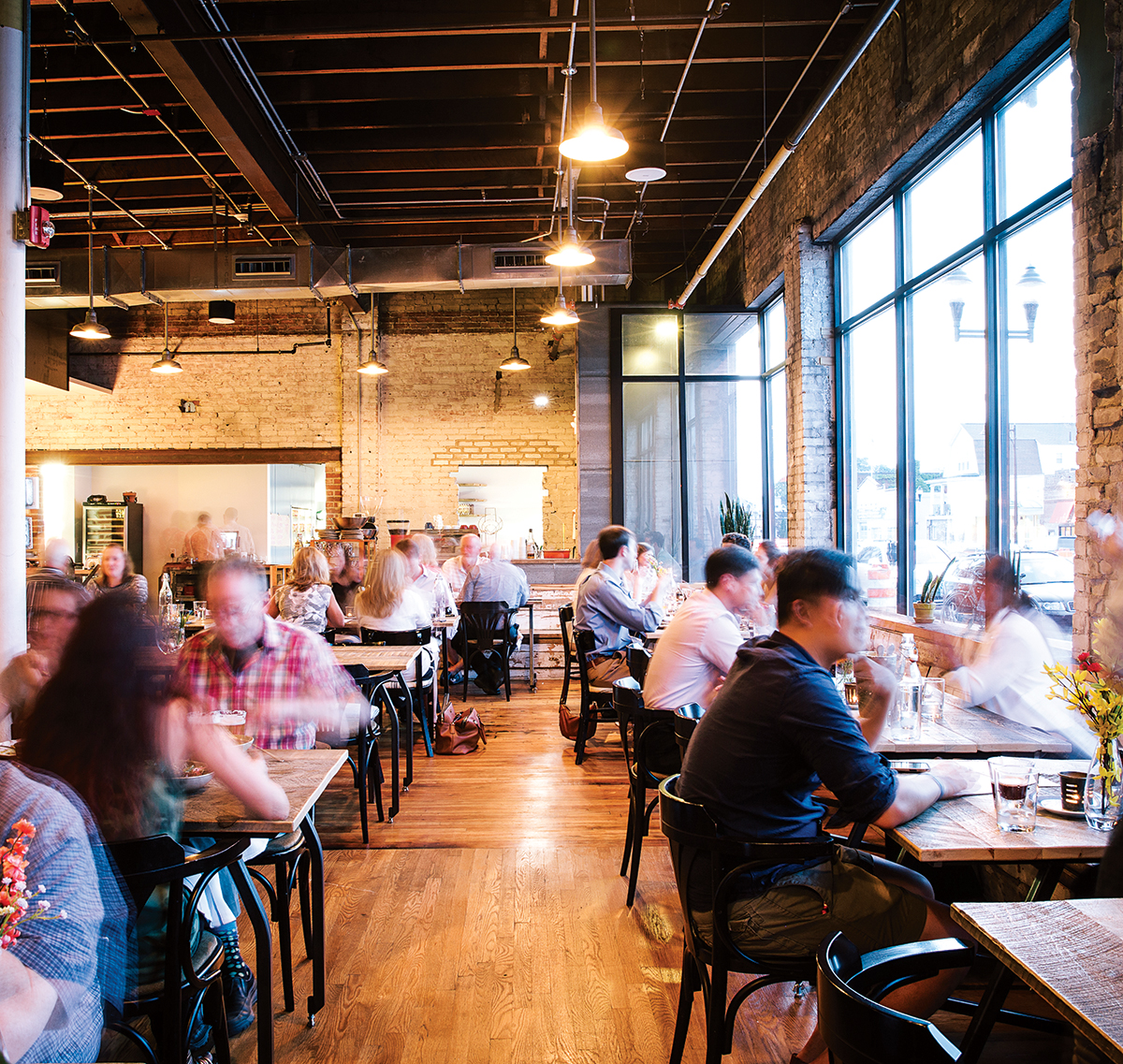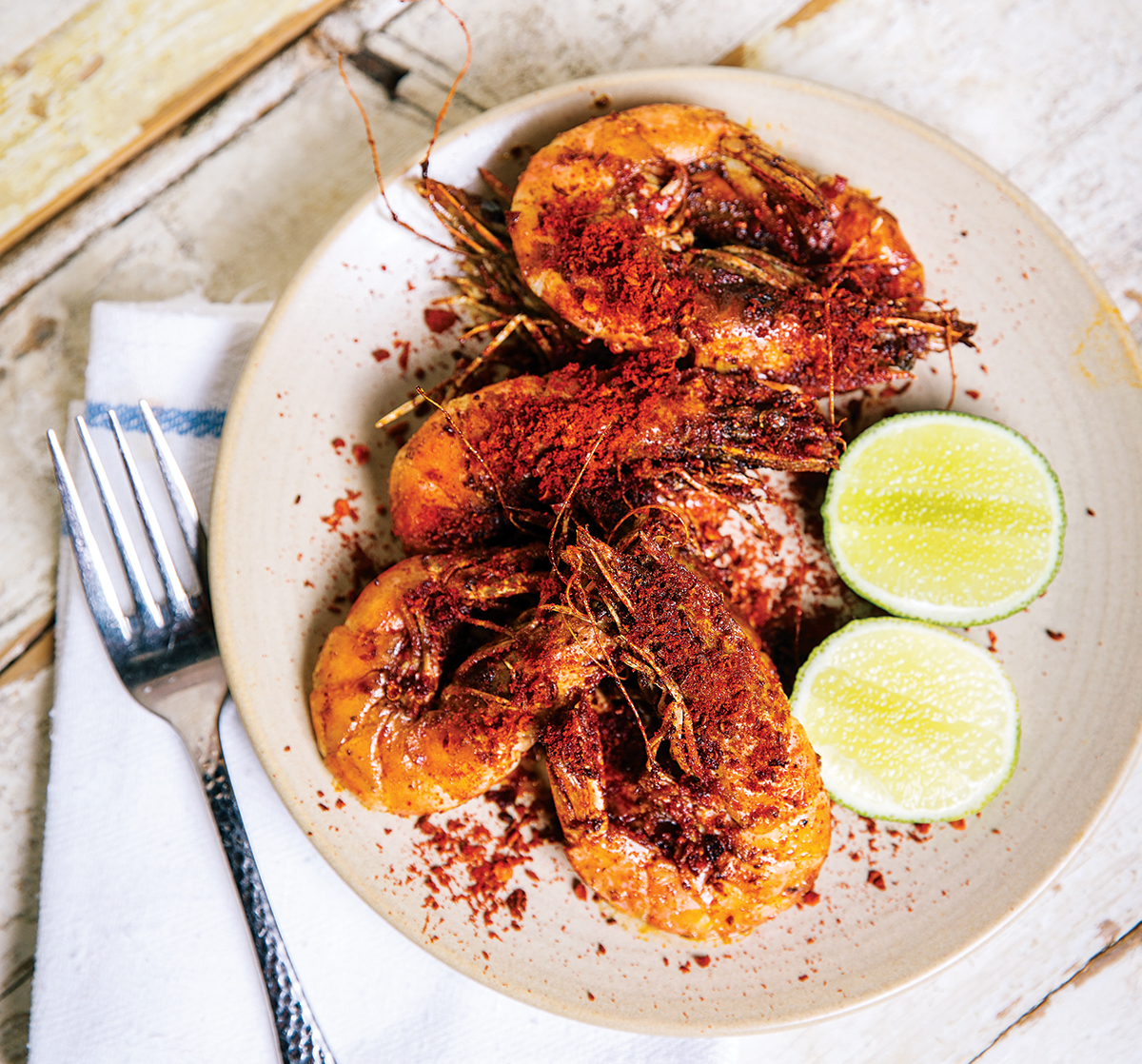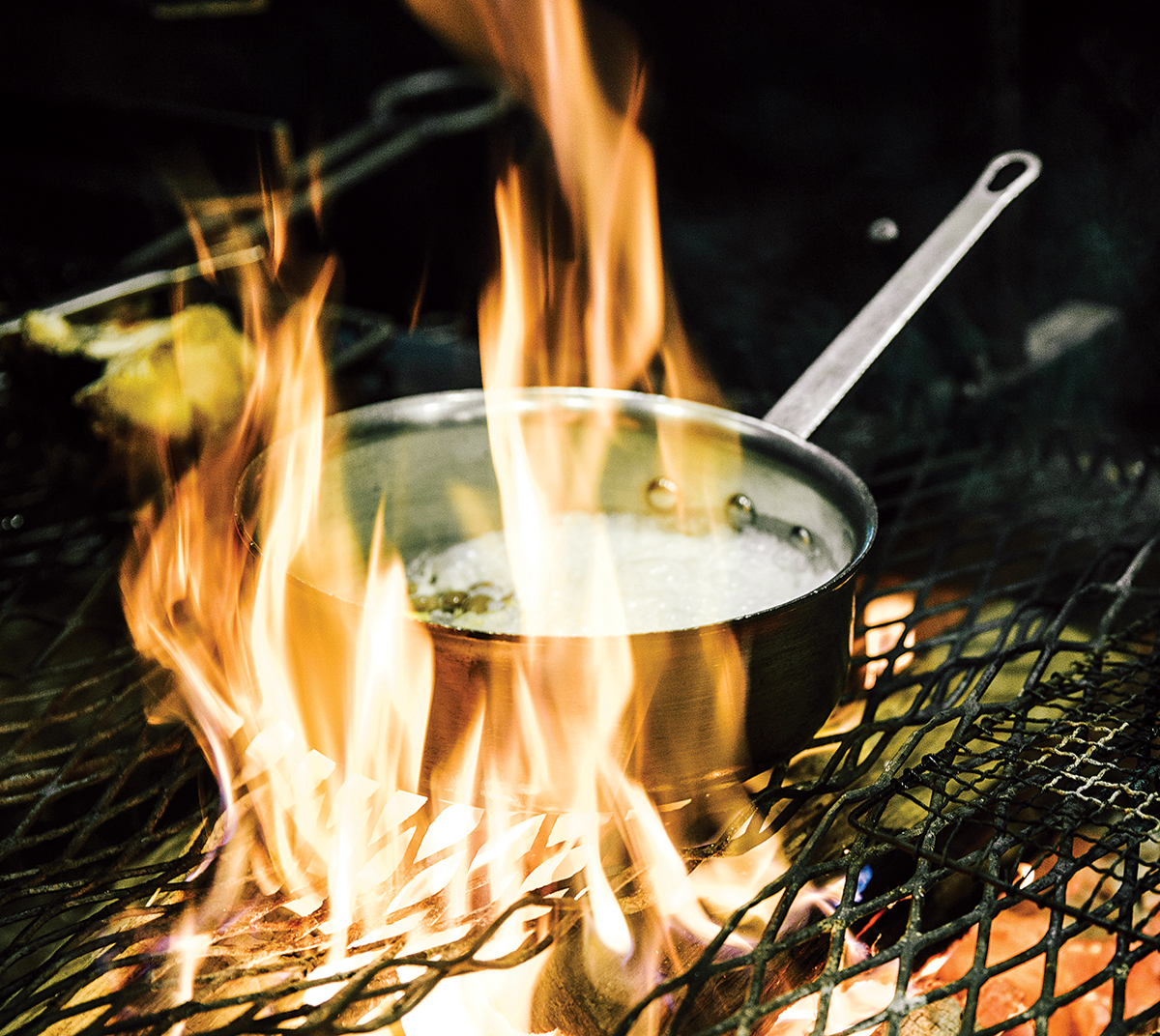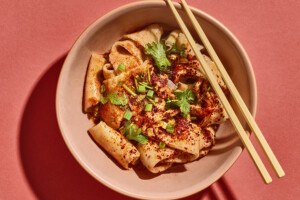Restaurant Review: La Brasa in Somerville

The dining room at La Brasa. Photograph by David Salafia.
La Brasa will be a very nice restaurant when it decides what it wants to be when it grows up. But for now, a few months into its life, the enormous, airy East Somerville venue shows a surfeit of talent, and a major lack of focus. Is it Mexican, like its chef and co-owner, Daniel Bojorquez? Is it a particularly authentic species of farm to table? The lettuces and turnips, after all, come straight from Apple Street Farms, the property of La Brasa’s co-owner, Frank McClelland (who hired Bojorquez a few years after he arrived as an ambitious young cook trained in Puebla, Mexico. Bojorquez cooked for six years at McClelland’s flagship, L’Espalier, and then his Sel de la Terre). So will the food be rustic Mexican, solid New England, or meticulously prepared and plated, à la L’Espalier?
The answer, as you might have guessed, is some of each. When La Brasa opened, Bojorquez said that the organizing principle was not a cuisine but the open flame from a massive wood-burning oven that cooks all of the food (the restaurant’s name translates to “burning wood”). Whatever the chef felt like cooking, he’d cook. It’s a recipe for excitement or confusion—and it results in both. A special of charred cabbage with Russian dressing, bacon, and Humboldt Fog cheese ($15) sounded as farm to table as you can get, and it was. But then there was a big surprise: invisible charred Serrano chilies, unmentioned on the menu, that exploded in the mouth and numbed well into the main course. Tiradito ($14) may be Peruvian in name, but Bojorquez’s could have been a prettily plated crudo at L’Espalier—with thin slices of translucent local fluke decorated with shaved fennel and red onion and served with black-garlic mustard, a lime, and an ají amarillo vinaigrette. Here the balance of cool fish, lightly pungent mustard, and refreshing citrus was subtle and elegant. Mexican fried rice with charred scallions and summer vegetables ($8) could have been ho-hum, but instead gained power and depth from burnt-garlic oil and tomato paste. It arrived studded with the kind of bright summer produce you’d get only at a place that takes the same care as, well, L’Espalier: fresh favas, French breakfast radishes, spring beans, and corn.

grilled peel-and-eat shrimp. Photograph by David Salafia.
Does it matter if someone like me can’t pigeonhole the food, if it’s all good? What’s wrong with experimenting? Nothing, in theory. Bojorquez’s two main idioms are Mexican and French, and he often makes a persuasive case for combining them. But not always, at least not yet. Seasoning seesaws, from those land-mine chilies to a dousing of salt on one dish one night, then a gentle sprinkling the next.
Opening La Brasa was a dream more than six years in the making, Bojorquez told me. But in the time between signing the lease in 2011 and opening the restaurant this spring, a number of other places launched featuring the same farm-meets-factory-floor décor. La Brasa, with its rough-hewn tables and pine-panel walls, looks more homemade than its predecessors. At one end there’s even a food market with products curated by Judson MacRae, a Barismo-trained barista who presides over the restaurant’s coffee program.
The staff is young and enthusiastic but a bit bumbling—not quite sure what goes into many menu items, forgetting to check if the flowerpots are filled with the silverware you need, sometimes dropping orders. Want bread to mop up the I-want-more-tomorrow mole that Bojorquez bathes roasted carrots ($9) in? “We don’t serve bread” was the snappish reply one night, with an offer of a side of corn tortillas. The next time? Slices of Clear Flour baguette arrived within minutes.
Bojorquez uses the open flame to great effect when he keeps things simple with, say, grilled peel-and-eat shrimp ($16), slathered in a harissa warmly spiced with paprika, coriander, caraway, and cumin, and served with a lime wedge. It’s the kind of dish you wish friends would invite you over for, and will leave your fingers a cheery brick red. Grilled lamb liver ($14) was a mostly successful plate; the pink slices of fine-grained meat were slightly gamy but not livery, and served over an oily, thick pupusa—a thick, cornmeal-based Salvadoran pancake Bojorquez fills with sautéed wild mushrooms, onions, shallots, and manchego cheese.

chef Daniel Bojorquez’s serious grill. Photograph by David Salafia
But the cross-cultural connections in other dishes seem floppy and unfocused. Swiss-chard pie ($12)—with an ancho-chili Colorado sauce, poached egg, and a Basque condiment called piperade—was made with an underbaked, rubbery flour- tortilla-style dough. Oh, and a couple of ham lardons and grated Parmesan. It was too much on the plate, too little in the way of textural contrast, and the flavors never fully met. A Korean squid pancake ($17), meanwhile, was an unexpectedly appealing flat, puffy crêpe lightened with rice flour and flavored with kimchi, scallion, bean sprouts, and grilled squid tentacles, sprinkled with sesame oil and hoisin sauce.
But what’s it doing on the menu? Bojorquez said he dreamed it up based on magazine articles and eating at Korean spots in Allston. Fair. But that, plus the Moroccan-style harissa on the shrimp, and the unremarkable grilled chicken breast ($15) with kale and Greek yogurt, make it hard to get a fix on the place. And yes, I know I’m not supposed to try.
Bojorquez told me that people want La Brasa to be Mexican because they know his heritage and his early training. But that’s not all he can do, he says—he was also trained classically in European-style cooking. I hear the chef’s frustration. And he had smashing results with one Med-Mex mash-up: Red Norland potatoes ($9), parboiled, salted, and smashed flat with the skins on, then roasted in the wood oven and served with a Kalamata tapenade and Serrano-spiked crème fraîche. Is it Greek? Catalan? Pan-Mediterranean? Doesn’t matter. Bojorquez made it work, brilliantly.
Bojorquez is strongest, however, in just the territory where he fears getting stuck: Mexican and Tex-Mex. Take, for example, brisket with charred-green-tomatillo sauce ($19)—it’s smoked for five hours, then braised in the oven for eight to 12 hours and drenched with a molasses-y, ketchup-y barbecue sauce with chili flakes and charred green tomatillos. Every bite was tender, with a sweet, spicy, beautifully melded sauce. The stellar mole with the carrots contains Mexican chocolate, raisins, sesame seeds, almonds, and chilies, and is thickened with dried tortillas. It tasted like something a Mexican grandmother would make, and in fact the dish came from a Oaxacan woman Bojorquez’s brother knows.
Desserts are mostly an afterthought. But the light cheesecake ($7) thickened with gelatin rather than egg, on a graham-cracker crust topped with braised cherries that a neighbor plucked from a tree down the street, is about as local as you can get. Safest is affogato ($5), with Toscanini’s Belgian chocolate ice cream “drowned” with expertly pulled espresso.
La Brasa is ambitious. And one can’t help but root for it when Bojorquez recounts his first years as a chef in the States: “I was a nobody from nowhere.” Just as his talent is large, so is his appetite for cultural influences. If he can hold his own hunger a bit, he’ll come up with a menu that will keep us all hungry to go to Somerville.
MENU HIGHLIGHTS
Mexican fried rice • $8
Roasted carrots with mole • $9
Grilled peel-and-eat shrimp • $16
Grilled lamb liver • $14
Barbecued beef brisket • $19
124 Broadway, Somerville, 617-764-1412, labrasasomerville.com.
Critic Corby Kummer—an editor at the Atlantic and author of The Pleasures of Slow Food—has been reviewing Greater Boston’s top restaurants in our pages since 1997.


